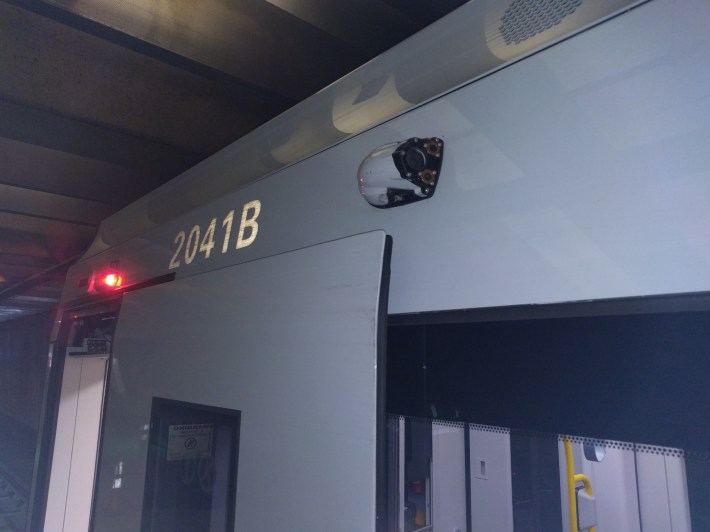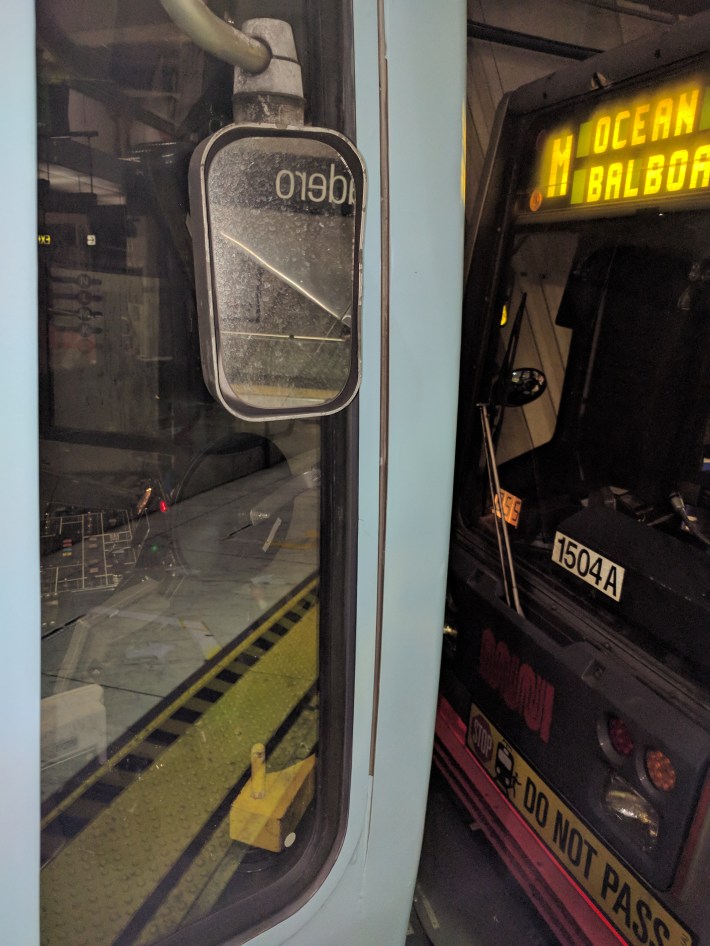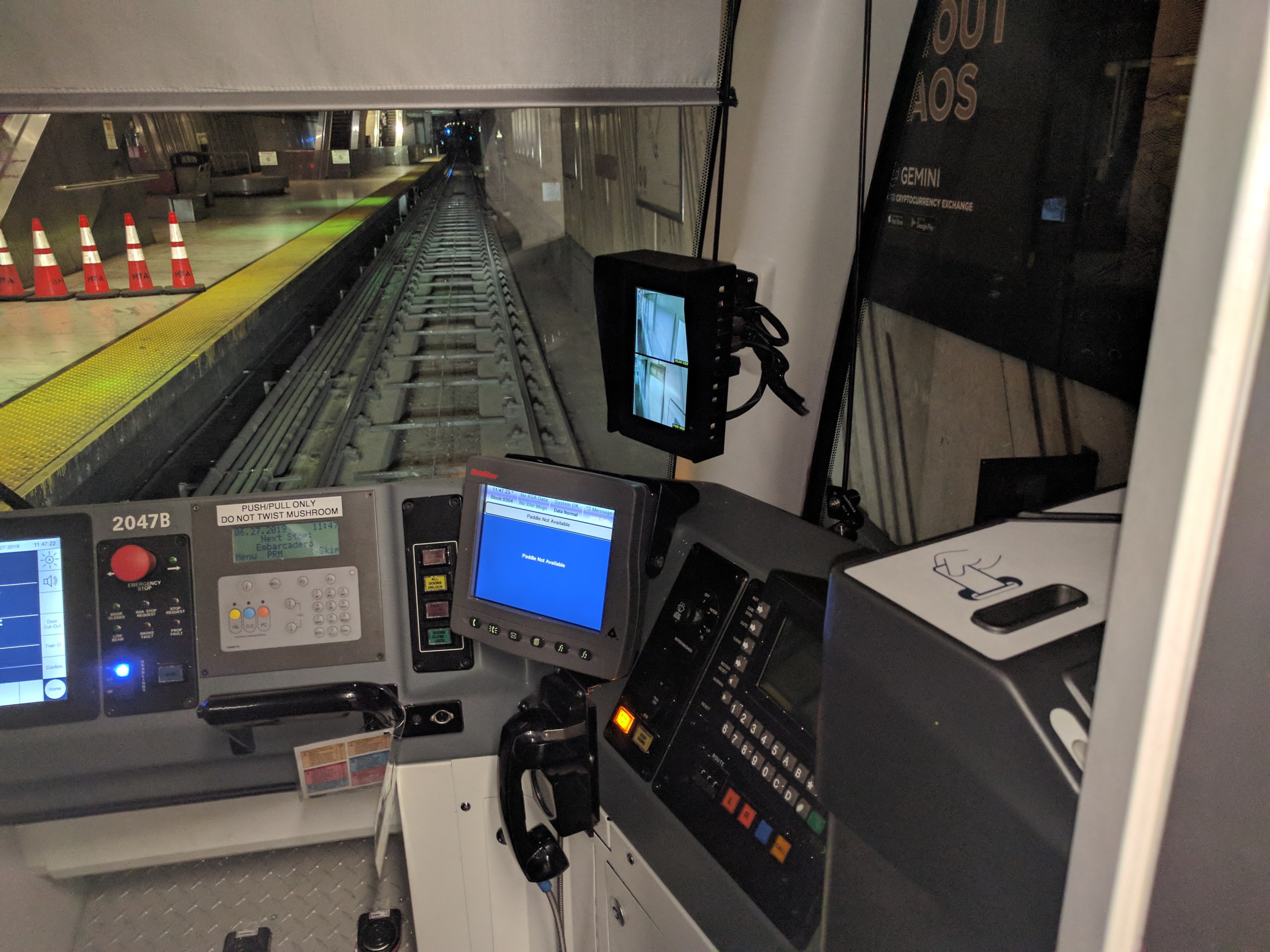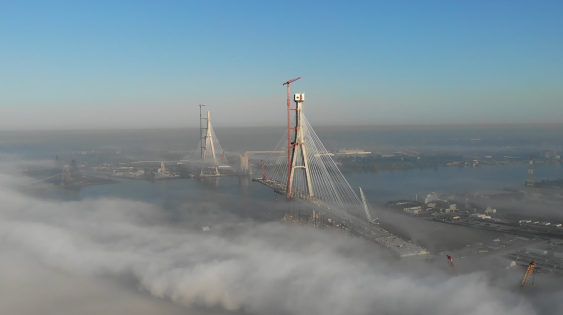Note: Metropolitan Shuttle, a leader in bus shuttle rentals, regularly sponsors coverage on Streetsblog San Francisco and Streetsblog Los Angeles. Unless noted in the story, Metropolitan Shuttle is not consulted for the content or editorial direction of the sponsored content.
Muni is now running two-car trains, with all doors operational, with its fleet of new Siemens-built light-rail vehicles. The agency announced yesterday that it has solved a door-sensor problem that contributed to three dragging incidents since November 2017. Muni had been running only single-car trains, with the rear doors locked, since April when a woman got her hand stuck in the rear door and was dragged and seriously injured at Embarcadero station.
From the SFMTA release:
Siemens, the train manufacturer, developed an updated door design that provides two additional sensitive edges, including one on the exterior side of the single panel door. This provides increased sensitivity to account for a broader range of obstructions with the doors.
But a safety expert and train operators who spoke with Streetsblog said a fundamental problem continues: the look-back video screens, which are supposed to allow operators to check to make sure nobody is being dragged by a train, are prone to freezing, glare issues, and have blind spots.
"When light hits the cameras, as happens every day, whether it's artificial or natural light, the screen whites out," said Roger Marenco, president of the Transportation Workers Union Local 250-A, which represents Muni's operators. When that happens, operators "...can't see anything. It just goes blank."
On the new trains, rather than look in rear-view mirrors to make sure nobody is stuck in a door, the operators look at two digital screens (the right one is seen in the lead image, and there is a left one as well, each giving a view of the corresponding side of the train). But, as seen in the image below, the cameras that feed the screens are placed behind the first door (and in front of the last door). This, operators told Streetsblog, means it's all but impossible to see the end doors.

Rather than go through official channels, a small group of Muni operators agreed to speak with Streetsblog on condition of anonymity. One said the video screens, with cameras facing backwards and forwards, are confusing and counter-intuitive compared to a standard rear-view mirror. And there are bugs beyond the white outs mentioned by Morenco. One operator described a time he was startled to see a man standing dangerously close to his moving train. But it turned out the man wasn't actually there; the video had frozen.
In addition, "The monitors that Muni operators use to look back at the doors are too small," wrote transit safety expert Dennis Lytton, in a text message to Streetsblog. "Especially on a two-car consist, in various lighting and passenger loading conditions, it could be problematic."
Officials from SFMTA acknowledged the problems. "We modified those monitors to make them touch screen (it’s a split screen where you can see down the vehicle in either direction)," wrote SFMTA spokesperson Erica Kato. "We’re in the process of putting in and testing a larger, 10” monitor, based on user feedback as well."
Lytton added that using video and screens instead of conventional mirrors isn't necessary a bad idea, since they can cover more area.

"But the installation...on the new Siemens-made cars don't appear to meet that threshold," he added. "The better door sensors are a good step. But the interface with the operator and the look-back monitor needs to be better evaluated." Streetsblog has an inquiry out to Siemens, which builds light-rail vehicles all over the world, to find out if they've had similar issues in other cities.
Marenco, meanwhile, said that SFMTA did not adequately seek the input of train operators when they approved the new cars. "Now you have dangerous situations and people suing, it could cost somebody's life." When asked if the solution might be to bolt conventional rear-view mirrors to the new trains, he agreed. When asked if the new trains should be pulled from service until that change is made, he replied "absolutely, without a doubt."






